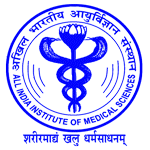| Acute Precision Medicine in Asthma: Personalized Treatment for Better Outcomes |
Asthma, a chronic respiratory condition, affects millions of individuals worldwide, making it a significant public health concern. This article explores the crucial role of personalized medicine in transforming the way we manage asthma. By tailoring treatment plans to the unique characteristics and needs of each patient, essay title suggestion from https://qualitycustomessays.com/essay-title-topic-suggestion/ precision medicine has the potential to greatly improve asthma outcomes and ultimately enhance the overall quality of life for those affected.
Asthma is a chronic respiratory disorder characterized by inflamed airways, increased mucus production, and heightened sensitivity to various environmental triggers. Common symptoms of asthma include shortness of breath, wheezing, persistent coughing, and chest tightness. Triggers such as allergens, smoke, pollution, and respiratory infections can exacerbate these symptoms, often leading to acute attacks. The impact of asthma on both individuals and public health is profound, significantly affecting daily activities, work, and overall well-being.
Traditional Approaches to Asthma Treatment
Traditionally, asthma treatment has primarily involved the use of bronchodilators to relieve symptoms and anti-inflammatory drugs to control airway inflammation. While these treatments have proven effective for many patients, they follow a one-size-fits-all approach. This approach doesn't account for the vast genetic and environmental differences among individuals, limiting the treatment's precision and efficacy. Consequently, patients may experience suboptimal results and struggle to manage their condition effectively.
What is Precision Medicine?
Precision medicine, on the other hand, involves tailoring medical decisions and treatments to the unique characteristics of each patient. It utilizes a patient's genetic makeup, lifestyle, environmental exposures, and other individual factors to design a personalized treatment plan. This approach aims to understand the root causes of the disease, thus providing targeted therapies that are specific to the patient. Unlike traditional approaches, precision medicine treats the individual, not just the symptoms, potentially leading to more effective and efficient outcomes.
Role of Precision Medicine in Asthma
Precision medicine is gaining traction in asthma treatment, offering a more individualized and effective approach. Genetic factors play a pivotal role in an individual's susceptibility to asthma and their response to specific treatments. By analyzing a patient's genetic profile, clinicians can identify personalized treatment strategies. For instance, genetic markers can determine the most suitable medication type, appropriate dosage, and predict the likelihood of adverse effects. This personalized approach optimizes treatment outcomes and minimizes adverse reactions.
Advantages of Precision Medicine in Asthma
The adoption of precision medicine in asthma care presents numerous advantages. Patients experience better symptom control and overall improved outcomes due to tailored treatment plans. Moreover, the precise approach significantly reduces adverse effects and hospitalizations, enhancing patient satisfaction and adherence to the prescribed treatment. The ability to foresee a patient's response to treatment fosters a more patient-centered healthcare approach, ultimately leading to enhanced quality of life.
Challenges and Future Prospects
Despite the promising potential of precision medicine in asthma management, its widespread adoption faces various challenges. These include the high costs associated with genetic testing, limited accessibility to advanced technologies, and the need for comprehensive training of healthcare professionals. Overcoming these hurdles requires continued research, technological advancements, and collaborative efforts across the medical community. The future holds immense promise as ongoing research aims to bridge these gaps, making precision medicine a feasible and mainstream approach in asthma care.
Conclusion
In conclusion, precision medicine represents a paradigm shift in asthma management. Tailoring treatment based on an individual's genetic and environmental factors can significantly improve outcomes and enhance the quality of life for asthma patients. This approach offers a beacon of hope for more effective, individualized care in the realm of respiratory disorders. We strongly urge medical researchers and practitioners to further explore this exciting field, driving innovation and promoting the widespread adoption of personalized approaches in asthma management. By doing so, we can collectively work towards a future where asthma care is truly personalized, ensuring the best possible outcomes and quality of life for all affected individuals.

